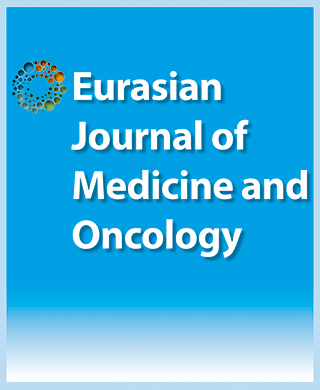

Comparison of Anti-Emetic Efficacy of Granisetron and Dexamethasone Supplemented or not with Aprepitant During Hepatic Arterial Infusion Chemotherapy Against Hepatocellular Carcinoma
Yu-Tong Cai1, Yan-Shan Lu1, Xiao-Ting Lin1, Li-Ting Wang1, Shu-Ying Luo1, Lin Huang1, Jia-Yong Su1, Liang Ma1, Jian-Hong Zhong21Department of Hepatobiliary Surgery, Guangxi Medical University Cancer Hospital, Nanning, China, 2Key Laboratory of Early Prevention and Treatment for Regional High Frequency Tumors (Guangxi Medical University) of the Ministry of Education, Nanning, China,
Objectives: Controlling chemotherapy-induced nausea and vomiting in patients with unresectable hepatocellular car cinoma (HCC) can be a challenge. Here we explored whether an anti-emetic regimen of granisetron and dexametha sone can be significantly improved by adding aprepitant. Methods: A total of 246 HCC patients at our medical center were prospectively enrolled between August 2020 and May 2023 to receive granisetron and dexamethasone at 30 min before initiation of hepatic arterial infusion chemotherapy. Just over half the patients (142) also received aprepitant at the same time as granisetron and dexamethasone, then again one and two days later. Patients who received aprepitant or not were compared in terms of the proportion who completed the first chemotherapy cycle without an emetic episode or rescue medication. Secondary outcomes included the propor tion who completed all chemotherapy cycles without emetic episode or rescue medication, as well as the frequencies of rescue medication and of chemotherapy interruption due to nausea or vomiting throughout all chemotherapy cycles. Results: The proportion of patients completing the first cycle without emetic episode or rescue medication tended to be higher when aprepitant was used (79.8% vs 69.7%), but the difference was not significant (p=0.287). A similar result was observed across all chemotherapy cycles (70.2% vs 59.8%, p=0.144). While aprepitant was associated with a significantly lower proportion of patients who required rescue medication (8.6% vs 18.3%, p=0.041), the two groups of patients had to interrupt chemotherapy due to nausea or vomiting with similar frequencies (2.9% vs 4.2%, p=0.737). Conclusion: Adding aprepitant to the combination of granisetron and dexamethasone may reduce the need for rescue medication against nausea and vomiting among HCC patients receiving hepatic arterial infusion chemotherapy, but this may not translate to clinically significant additional benefit. Keywords: Aprepitant, anti-emetic efficacy, hepatic arterial infusion chemotherapy, FOLFOX, hepatocellular carcinoma
Cite This Article
Cai Y, Lu Y, Lin X, Wang L, Luo S, Huang L, et al. Comparison of Anti-Emetic Efficacy of Granisetron and Dexamethasone Supplemented or not with Aprepitant During Hepatic Arterial Infusion Chemotherapy Against Hepatocellular Carcinoma. EJMO. 2023; 7(4): 396-401
Corresponding Author: Jian-Hong Zhong



